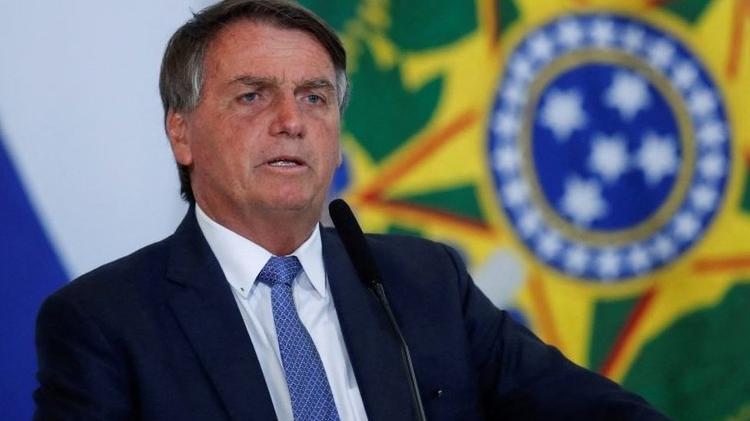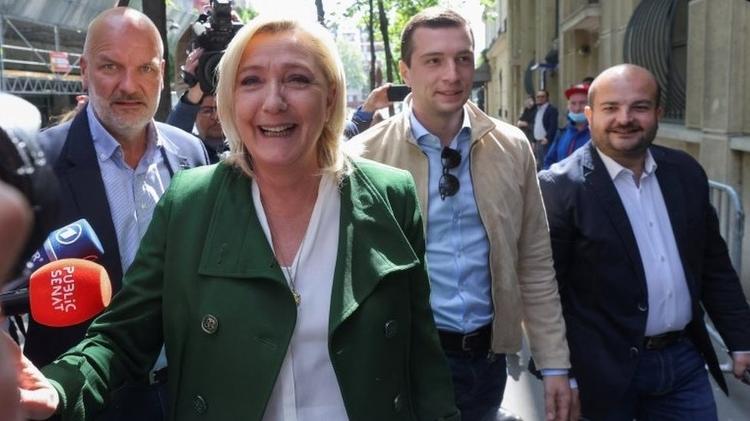With the re-election of French President Emmanuel Macron, the government of Jair Bolsonaro (PL) should maintain a distant relationship with Brazil, according to experts heard by BBC Brasil. A final rapprochement will depend on the outcome of the Brazilian presidential election in October and a real change in the country’s environmental policy.
“Relations between the two countries should remain cool, at least until the Brazilian elections. If Lula is elected in October, there should be a significant change in bilateral relations. Gaspard Estrada, executive director of the Latin American and Caribbean Political Observatory at the University of Sciences Po in Paris, said: “On both sides. “As long as there is political will, the lock of the European Union can be unlocked with Lula coming to power,” he said.
Estrada adds that if Bolsonaro is re-elected, relations between the two countries tend to remain distant, unless there is a significant change in the environmental policy of the Brazilian government.
If a third party wins the Brazilian presidential election, the expert says, a hypothesis he thought “unlikely” due to spontaneous polls six months before the election, “any name would be better than Bolsonaro’s” to bring France even closer. do Brasil stresses, however, that effective progress in this direction will depend on the proposals of this ultimate third party.
Macron was re-elected with 58.6% of the vote, while his opponent, Marine Le Pen from the radical right, had 41.4%, the best result of the National Rally (formerly the National Front) in a presidential race in France. .
The vote was marked by a strong abstention of 28%; this is the second highest since 1969, in addition to more than 8% blank and invalid votes. Voting is not compulsory in France.
Macron does not have good relations with Brazilian President Jair Bolsonaro (PL), who caused indignation in the French government by mocking the appearance of France’s First Lady Brigitte Macron on social media and canceled his appointment with French Prime Minister Jean-Yves Le Drian. Hair cut.
A strong point of friction between the two heads of state is the deforestation of the Amazon, which has provoked many exchanges of thorns since 2019, when wildfires gained worldwide prominence.
At the end of last year, Macron said the relationship between Brazil and France was “better” and emphasized at a G20 meeting the need to expand cooperation to protect the Amazon.
The French president has also refused to proceed with the ratification process of the agreement, which was signed in 2019 after 20 years of negotiations between Mercosur and the European Union, due to the Brazilian government’s environmental policy.
In this only French presidential campaign debate between Macron and Le Pen on the eve of the second round, when the Brazilian chicken was called an example of unfair competition by the leader of the radical right, Macron refused to move forward with the agreement of France’s Mercosur-European Union.
According to Macron, this French stance comes as the Paris Agreement does not respect climate commitments or biodiversity, emphasizing that Europe proposes measures to combat “imported deforestation”. They aim to ban certain products from deforested areas, such as meat, soy, coffee and wood, from entering the European continent.
distant relations with Latin America
France (represented by Macron) holds the rotating presidency of the European Union until the end of June and hopes to reach an agreement on an import ban linked to deforestation during this period.
As Macron recalled during the TV debate, France made a proposal that would in practice compel Mercosur manufacturers to respect demands from European farmers and industrialists, including the so-called “mirror clause” in the Mercosur-European Union agreement. . This French proposal must also be approved by the other 26 member states of the European Union.
Macron has been criticized for his environmental policy, seen as inadequate and left in the background by some of the population.
To win in the first round the young voters from the radical left who overwhelmingly favor candidate Jean-Luc Mélenchon, and voters on the left in general, Macron promised to make the issue a priority at the end of his presidential campaign. His second term, which will begin in May.
In this political context, the French leader will hardly change his stance on the Mercosur-European Union agreement as long as Brazil continues to break records for deforestation in the Amazon, as it did in the first quarter of this year.
Analysts predict that changes in Brazilian environmental policy could only happen if a new government leaves the polls in this year’s presidential election.
However, if Le Pen had won the presidential election, trade relations with Brazil could have gone backwards. Le Pen wanted to exclude agriculture from trade agreements signed by the European bloc, in addition to reintroducing controls on goods at the border, even if they were previously inspected in another member state, in violation of the free movement of goods agreement.
Macron did not have close relations with other Latin American countries. He only visited Argentina for the G20 meeting and did not make an official visit to the region, although France’s longest border is between French Guiana and Brazil.
Bolsonaro did not congratulate Macron
Bolsonaro has so far not congratulated Macron on his presidential victory.
Itamaraty issued a short note the day after the French election, greeting the French president and reaffirming “Brazil’s willingness to work to deepen the historic ties that unite the two countries”.
The presidents of Colombia, Argentina, Mexico and Chile welcomed Macron, as did the leaders of many other countries, including Russia.
For the presidential election in Brazil, preliminary candidates such as João Doria (PSDB), Ciro Gomes (PDT) and Simone Tebet (MDB) congratulated the French president. The current leader of the polls, Luiz Inacio Lula da Silva (PT), posted a photo of him with Macron on social media, congratulating him on “his broad victory in the polls” and saying he was “rooted for the government’s success”. “
Lula was received by Macron last November at the Élysée Palace, with the official protocol traditionally given to former heads of state.
Although Lula does not hold any public office, at the meeting they discussed global issues related to Brazil, such as the social effects of the health crisis, climate transition and the fight against deforestation.
The Advancement of the Radical Right in France
Marine Le Pen competed in the third presidential election for the party founded by her father Jean-Marie Le Pen in the 1970s, despite being defeated, she gave an unprecedented performance exceeding 40% of the vote. Experts say this is a remarkable advance for the radical right in France.
Le Pen moderated his talk, although his program retained some of the party fundamentals of his father’s time. It received nearly 2.6 million more votes than in 2017, increasing the runoff result by nearly eight percentage points.
Le Pen and Jean-Luc Mélenchon from the radical left, who finished third with 22 percent of the vote in the first round, are now hoping to perform well in June’s legislative election to prevent Macron from gaining a parliamentary majority.
“Le Pen won his bet even though he didn’t win the election. It’s predicted[a new presidential race]will be on the horizon in the next five years,” says Jean-Jacques Kourliandsky, professor at the Institute of International Relations. Director of the Latin American Observatory for Strategic Relations and the Jean Jaurès Foundation, affiliated with the Socialist Party.
According to the analyst, the high rate of abstention in these French presidential elections is a “serious dysfunction of democracy” and if voters think that it is not worth voting or better to protest by voting, the political party’s proposal no longer meets the expectations of the voters and the electoral system does not allow representation of that voter. .
Like Brazil, France is divided. In his speech after the announcement of his victory, Macron promised to unite the country. But the polarization in France is mainly of an economic order.
Higher-income, higher-educated, and middle- and upper-class retirees from large urban centers chose Macron more. On the other hand, in addition to farmers, lower income classes, workers, the unemployed and those living in small rural areas also preferred Le Pen.
source: Noticias

